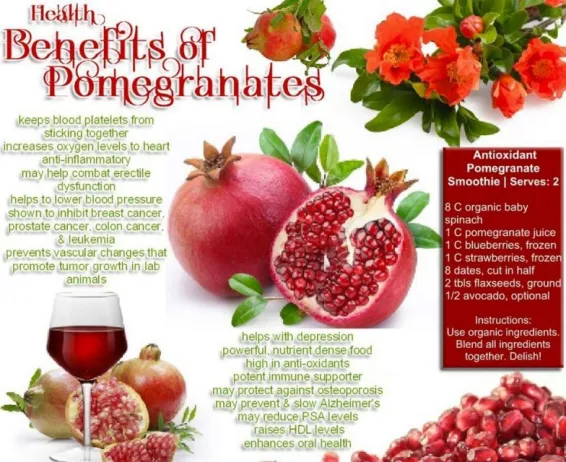Pomegranates are more than just a delicious addition to your diet; they are a powerhouse of nutrition and health benefits. Known for their vibrant red arils and sweet-tart flavor, pomegranates make their appearance mainly in the fall and winter months. This pomegranate seasonal bounty is not only a pleasure to the palate but also offers an array of health advantages that are both wide-ranging and profound. Here’s a deep dive into why pomegranates should be a staple in your diet during their peak season.
Introduction to Pomegranates
Pomegranates, or Punica granatum, are a fruit that has been celebrated for its medicinal properties since ancient times. Originating from regions in Iran and northern India, In Pomegranate Season the pomegranate is now cultivated in various parts of the world, including the Mediterranean, Middle Eastern countries, Africa, and the Americas.
Nutritional Profile in pomegranate season
A single pomegranate provides a significant portion of your daily vitamin C and vitamin K needs and is a good source of dietary fiber. Moreover, it is rich in folate, potassium, and copper. The fruit is also loaded with powerful antioxidants, such as punicalagin and tannins, which are concentrated in the juice and peel.
Antioxidant Properties
One of the most celebrated benefits of pomegranates is their high level of antioxidants in Pomegranate Season. These compounds play a crucial role in maintaining health by neutralizing harmful free radicals in the body.
Fighting Oxidative Stress
Oxidative stress occurs when there is an imbalance between free radicals and antioxidants in your body. Consistent oxidative stress can lead to chronic inflammation, which is linked to many serious diseases, including heart disease, cancer, diabetes, and Alzheimer’s disease. The antioxidants in pomegranates help maintain the balance, potentially warding off these conditions.
Enhancing Heart Health
Pomegranates contribute to heart health in several significant ways. They enhance the function of blood vessels, lower blood pressure, reduce cholesterol, and decrease plaque formation in the arteries. By integrating pomegranates into your seasonal diet, you can reduce risk factors for heart disease and promote overall cardiovascular health.
Immune Support
The nutrients found in pomegranates support the immune system in various ways, making it a great addition during the cold and flu seasons.
Vitamin C
As a rich source of vitamin C, a single pomegranate can meet about 30% of your daily requirement. Vitamin C boosts the immune system by enhancing the function of immune cells and reducing the duration and severity of colds.
Anti-inflammatory Effects
Pomegranates have significant anti-inflammatory properties, which are beneficial since chronic inflammation is a precursor to many serious health issues, including heart disease, cancer, type 2 diabetes, and obesity. The fruit’s ability to reduce inflammation supports the body’s immune response and promotes overall health.
Cancer Prevention
Emerging research suggests that pomegranates may play a role in cancer prevention. Their high concentration of antioxidants helps prevent the growth of cancer cells and may even aid in reducing their spread.
Prostate and Breast Cancer
Studies have shown that pomegranate extract can slow cancer cell reproduction and even induce apoptosis (cell death) in cancer cells, particularly in prostate and breast cancers.
Enhancing Digestive Health
Dietary fiber is an essential component of a healthy diet, aiding digestion and preventing constipation. Pomegranates are a good source of fiber, with about 7 grams per fruit, helping you meet the daily recommended intake.
Prebiotic Effects
Recent studies suggest that pomegranates may have prebiotic effects. The compounds in the fruit help promote the growth of beneficial gut bacteria, which enhances gut health and contributes to a robust digestive system.
Skin Health
In Pomegranate Season, Pomegranates are often praised for their benefits to the skin, thanks to their vitamin C and antioxidant content.
Cellular Regeneration
The nutrients in pomegranates help protect the skin from sun damage and pollution. They also aid in cellular regeneration, keeping the skin fresh and rejuvenated.
Anti-Aging Properties
The antioxidants and vitamins in pomegranates help reduce signs of skin aging, including wrinkles and fine lines, by neutralizing harmful free radicals and supporting skin repair.
Conclusion
Incorporating pomegranates into your diet during their peak Pomegranate Season offers numerous health benefits that touch almost every aspect of your body’s function. From boosting your heart health and immune system to providing cancer-fighting antioxidants and promoting healthy, youthful skin, pomegranates are a true superfruit. The health benefits, coupled with their delicious taste, make pomegranates a perfect seasonal addition to a balanced diet, helping you live a healthier and more vibrant life.





Thanks for sharing. I read many of your blog posts, cool, your blog is very good.